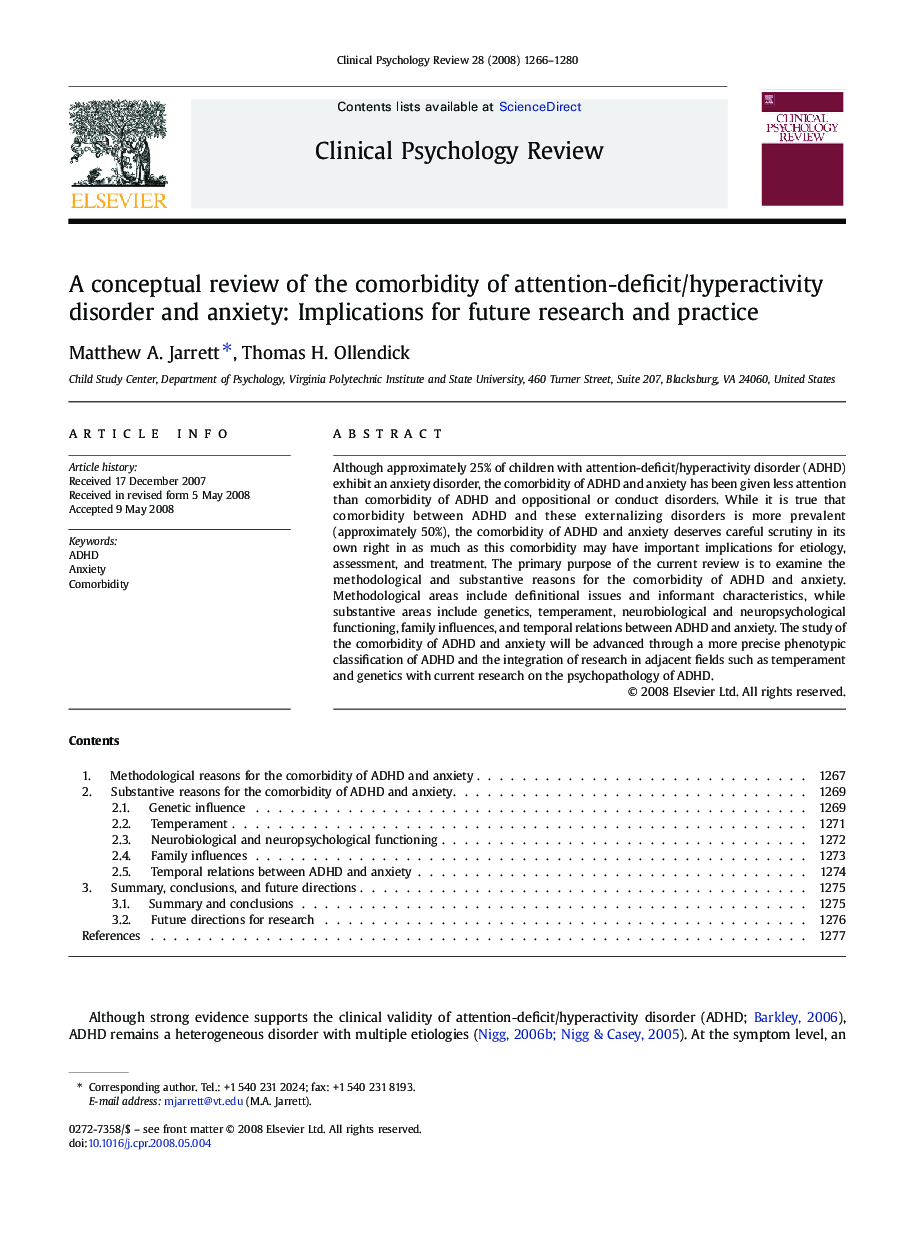| Article ID | Journal | Published Year | Pages | File Type |
|---|---|---|---|---|
| 904087 | Clinical Psychology Review | 2008 | 15 Pages |
Although approximately 25% of children with attention-deficit/hyperactivity disorder (ADHD) exhibit an anxiety disorder, the comorbidity of ADHD and anxiety has been given less attention than comorbidity of ADHD and oppositional or conduct disorders. While it is true that comorbidity between ADHD and these externalizing disorders is more prevalent (approximately 50%), the comorbidity of ADHD and anxiety deserves careful scrutiny in its own right in as much as this comorbidity may have important implications for etiology, assessment, and treatment. The primary purpose of the current review is to examine the methodological and substantive reasons for the comorbidity of ADHD and anxiety. Methodological areas include definitional issues and informant characteristics, while substantive areas include genetics, temperament, neurobiological and neuropsychological functioning, family influences, and temporal relations between ADHD and anxiety. The study of the comorbidity of ADHD and anxiety will be advanced through a more precise phenotypic classification of ADHD and the integration of research in adjacent fields such as temperament and genetics with current research on the psychopathology of ADHD.
